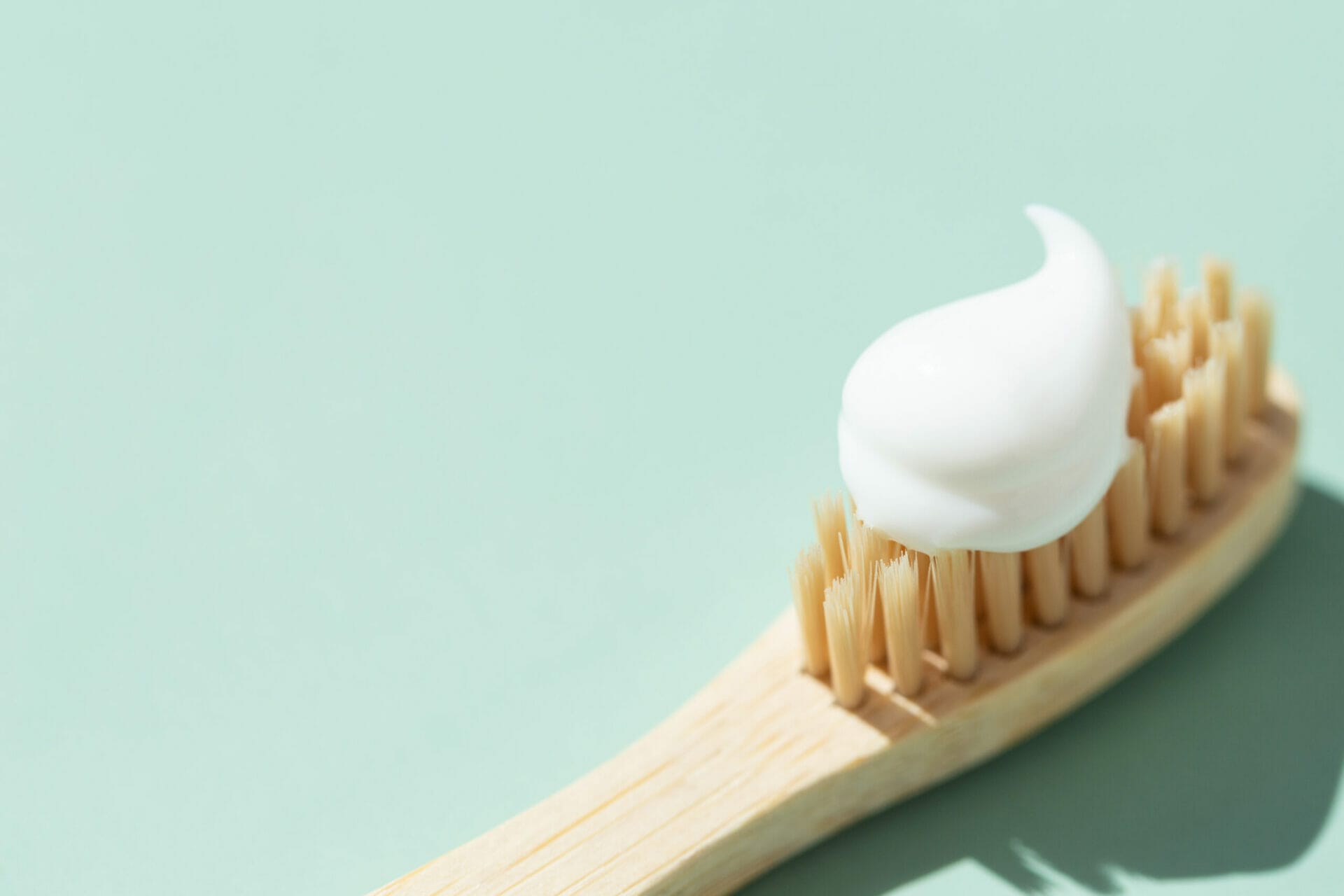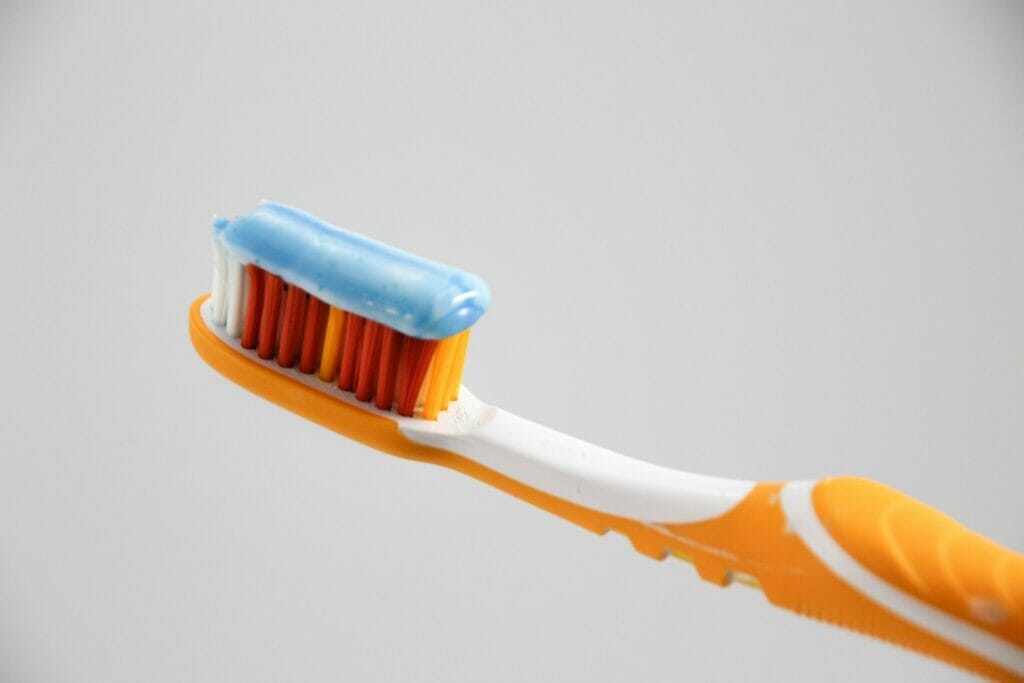
Hi! My name is Kyle Hornby and I'm a Kitchener, Ontario Family Dentist. A few times each week, I sit down at my computer to write blog articles that help dental patients better understand oral health. Today, I'd like to answer some really important questions to give you the info you need to pick a toothpaste brand that's right for you!
"Isn't all toothpaste the same?".
I hear this all the time and it's a valid question. Most of us know of brands like Colgate and Crest and we usually buy the toothpaste that's on sale (I do this too). But, there are many other toothpaste brands and not all formulations are created equal.
Some toothpastes are healthier than others, contain fewer or no harmful chemicals, and may offer advantages like eliminating tooth sensitivity or re-mineralizing your enamel.
With the ever-increasing emphasis on a bright smile, most people now look for toothpastes that will whiten their teeth.
So, the best toothpaste for you depends on what you want from your toothpaste.
You see the commercials all the time: "4 out of 5 Dentists recommend...".
Well, it seems like Dentists recommend a lot of different toothpastes. Typically, Dentists recommend toothpastes if they contain fluoride. They may also recommend toothpastes that decrease sensitivity (think Sensodyne).
But, again, you need to know what you want from your toothpaste. Don't just buy something because a commercial tells you that Dentists recommend it.
For instance, lots of Dentists recommend Crest and Colgate brand toothpastes but they contain Sodium Lauryl Sulfate (SLS) and that's a mild detergent and foaming agent that can strip away layers of cheek tissue. This can cause recurrent aphthous ulcers (what people commonly refer to as "canker sores").
So, if you're someone who suffers monthly canker sores, then you may want to avoid toothpastes that contain SLS.
Dentists may also recommend toothpastes containing the whitening agent carbamide peroxide. Problem is, whitening your teeth causes increased sensitivity to cold, hot, sweet, etc.,. So, if you're somebody that battles tooth sensitivity already, you might not want a whitening toothpaste.
Or, if you like white teeth but deal with unpleasant sensitivity, you may want to use whitening toothpastes in short intervals before switching back to something that might help to desnsitize your teeth!
Now, let's get back to talking about fluoride...
What's the big deal about Fluoride? And, do you need it?
Well, Fluoride soaks into enamel and makes it more resistant to the bacterial acids that cause cavities. However, more and more people are concerned about adverse health consequences of fluoride use.
As a Dentist, I don't argue with what people believe in. I respect their beliefs. I try to help them to balance oral health with their preferences. If you don't use fluoride, it helps if you limit the things that can cause cavities. For instance, you may want to minimize sugar and carbohydrates.
It also helps to ramp up other protective measures, like brushing 3-4 times per day instead of the standard 2 times. Flossing after meals will go a long way too!
I'd also like to discuss another toothpaste option: Hydroxyapatite (HA) toothpaste. Hydroxyapatite is the main building block in tooth enamel. When you use this toothpaste, it feeds your teeth the natural material from which they're already built. These toothpastes also tend to be manufactured by companies that favour natural ingredients.
NOTE: Risewell is a US company that makes Hydroxyapatite Toothpaste (you can find out more about it here).
Hydroxyapatite toothpastes can help to rebuild your teeth (a lot of non-fluoridated, natural toothpastes don't) so that you can avoid fluoride if you want, while still maintaining the health of your enamel.

There is a bit of a Baking Soda/Activated Charcoal Toothpaste craze going on right now. People have heard that both toothpastes are great for removing stains and keeping teeth whiter.
Is it true, though?
Well, both toothpastes are highly abrasive and will be more effective at stripping and removing stain from your tooth enamel.
But, guess what?
These toothpastes will also wear down and strip away your tooth enamel over time.
With these toothpastes, I recommend using them very sparingly. For example, brushing with them for 2-3 days every 4-6 months will help you to remove surface stains while maintaining the integrity of your enamel.
Brushing with these toothpastes daily over the long term, will remove your enamel slowly and the underlying yellow dentin will show through more and more.
So, if you're looking for whiter teeth, frequent use of baking soda and charcoal-based toothpastes isn't the answer.
Whitening toothpastes and gels all work using the same chemistry. They contain carbamide peroxide which hits your saliva and breaks down to produce molecular oxygen.
Sound complicated?
Don't worry, it's the same mechanism used by those carpet cleaners that "harness the power of molecular oxygen" (you may remember this from the commercials you'd see 10-15 years ago).
The molecular oxygen just moves stain-causing particles out of your enamel. The ultimate result is that you get whiter teeth.
Now, while whitening will cause a temporary increase in tooth sensitivity (i.e. to cold, hot, acidic...), it does not harm your tooth enamel. Additionally, the concentration of carbamide peroxide is much lower in toothpastes compared to what you'd find in commercial-grade and medical-grade whitening formulations.
If you're interested in some great research on the safety of whitening toothpastes, you'll find it in Dr. Harold Heymann's articles on tooth whitening.
By Dr. Kyle Hornby, Kitchener Dentist
Our Dentist Office is located in Downtown Kitchener. We are a short drive away for families in Waterloo, Breslau & St. Jacobs. Our central location means we truly offer family dentistry near you!
This article is not intended to be a substitute for professional advice, diagnosis, or treatment. Accordingly, always seek the advice of your Dentist or other healthcare providers regarding a dental condition or treatment.
Services
Routine Dentistry & Tooth Repair
Oral Surgery & Tooth Removal
Prosthetic Dentistry & Tooth Replacement
Protective/Preventive Services
Teeth Whitening
Schedule an Appointment Now
